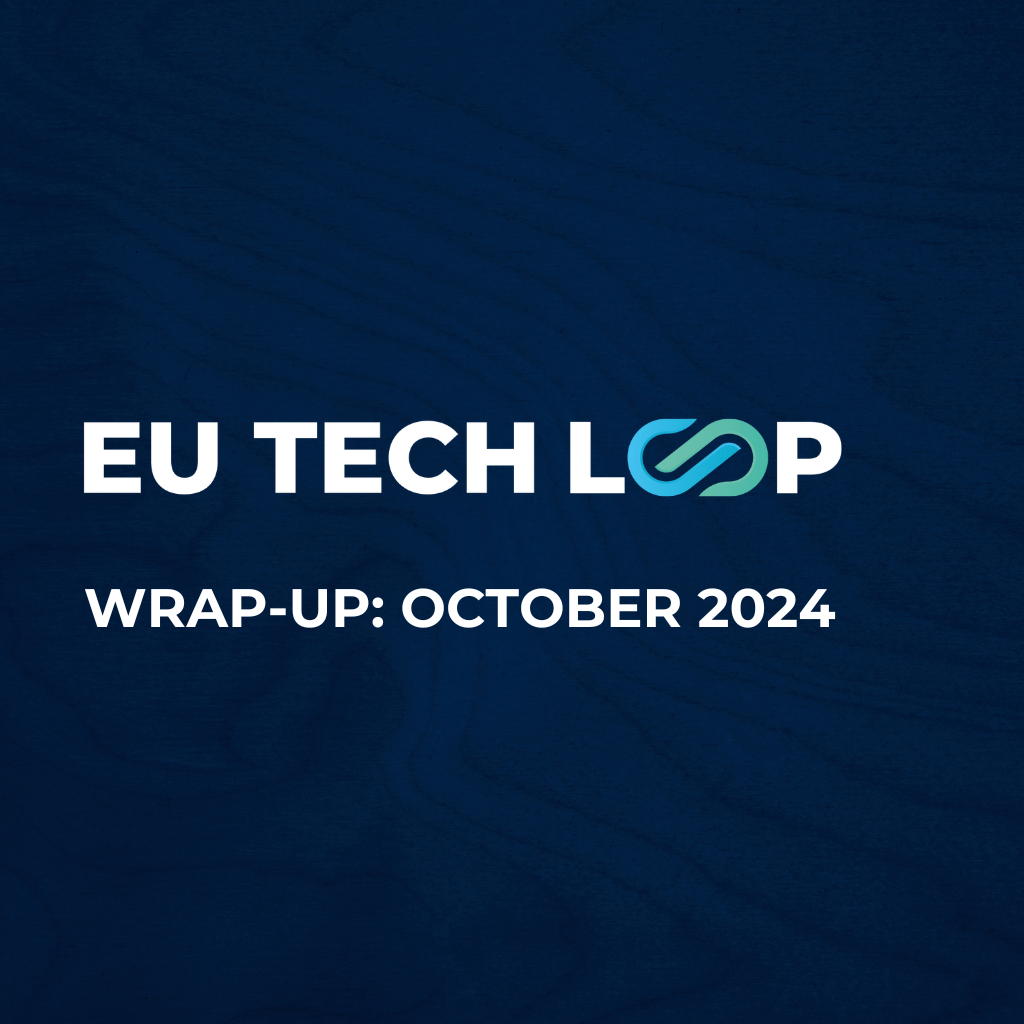EU Tech Loop wrap-up: October 2024
With Commissioners-designate soon heading into European Parliament committee hearings and the entire College of Commissioners expected to be approved by early December, the EU tech industry—and consumers—are eagerly awaiting to see what comes next.

With Commissioners-designate soon heading into European Parliament committee hearings and the entire College of Commissioners expected to be approved by early December, the EU tech industry—and consumers—are eagerly awaiting to see if Draghi's call for a halt on overregulation in Europe will become a reality.
Hungarian Presidency of the Council of the EU is slowly coming to an end, and we're curious to see if Polish Government officials' commendable stance on avoiding overregulation extends to tech policy during Polish Presidency too.
Finland’s nominee for Vice-President of the Commission and Commissioner for Technological Sovereignty, Security, and Democracy, Henna Virkkunen, faces high expectations. There are things the EU's tech and telco community might disagree on, but everyone seems to expect her to reduce the European telecommunications sector's reliance on Chinese infrastructure and prioritize the effective implementation of existing regulations over introducing new ones.
Time will tell if the Commission President's commitment to reducing red tape and administrative burden will be backed by principle.
Meanwhile, discussions on extending telecommunications rules to digital services, digital fairness, and social media practices continue.
Reducing Chinese influence in the EU's telco: Poland moves ahead
Poland recently announced plans to phase out Chinese equipment from its telecom infrastructure, particularly in 5G networks, where Chinese companies like Huawei and ZTE hold significant market shares. Commendable stance, given that many EU Member States still do not follow the 5G Toolbox framework proposed by the Commission back in 2020. Find our full article here.
Outcomes of introducing network fees in South Korea: the impact on consumers and internet experience
While the European Union is still debating whether network fees should be introduced for digital service providers, South Korea is an example of the potential impact high network fees bring for consumers. South Korea introduced network fees in 2016, which have significantly affected its digital economy: TWITCH exited the country, blaming 'unsustainable network fees,' and META is also believed to have moved its servers out of South Korea for similar reasons. Find our full article here.
Trans-Atlantic tech cooperation: a plea for Brussels and Washington to work together
With the new College of Commissioners likely to be approved by December 1 and the U.S. Presidential election taking place already next week, tech communities on both sides of the Atlantic are eager to see what the next five years will bring for transatlantic tech cooperation. Although rhetoric on both sides is often quite strong, with protectionism championed more than it has been in decades, calmer and more reasonable voices are needed more than ever. If the U.S. and, especially, the EU want a credible chance of remaining competitive against Chinese tech, they will need to temper their ambitions for tech sovereignty and genuinely work together. Find our full article here.
AI race revisited: how long until China catches up and what can the EU & the US do to cooperate better
The Global AI race has been a major focus area for policymakers and tech communities in recent years, with the United States and China being at the forefront (with Germany and France making big moves forward too). Countering China’s industrial policy with their recipes, such as subsidies and trade restrictions, is not what tech companies once made great in liberal democracies, but embracing market-based competitiveness is. Ultimately, the EU, US, Japan, Canada, Australia, South Korea, and other liberal democracies should identify barriers to successful AI cooperation and work on reducing among their economies. Find our full article here.
All eyes on the upcoming Polish presidency of the Council of EU: a window of opportunity for a change in tech regulation
Poland will begin its Presidency of the Council of the EU on January 1, 2025. Polish government officials have stated they will prioritize six areas through a security-focused lens: 1) defense, 2) energy, 3) economy, 4) food, 5) health, and 6) information security and cybersecurity. Strong political statements have already been made about the need to avoid overregulation and focus on increasing sovereignty from China rather than the U.S. While it will be difficult to back these goals with action, especially within a six-month term, we wish Poland the best of luck. Find our full article here.

